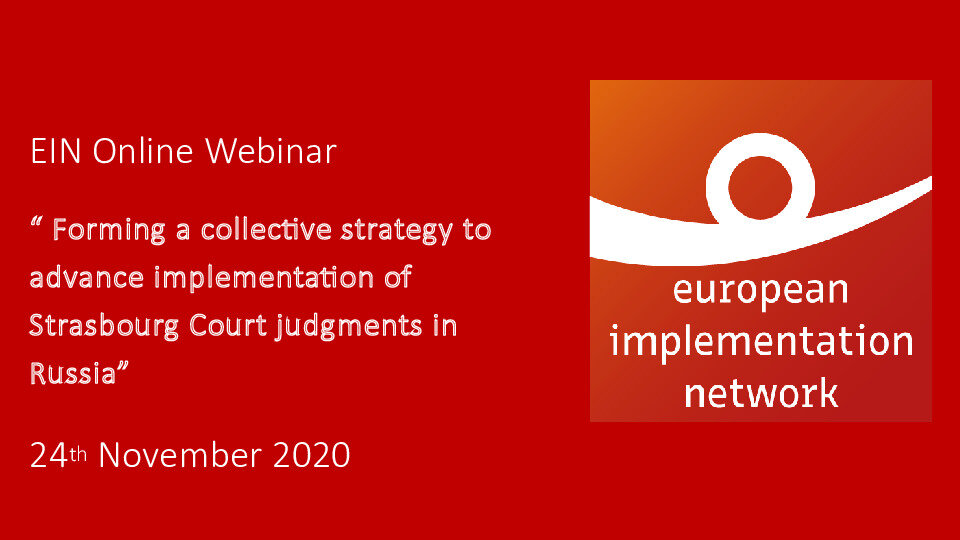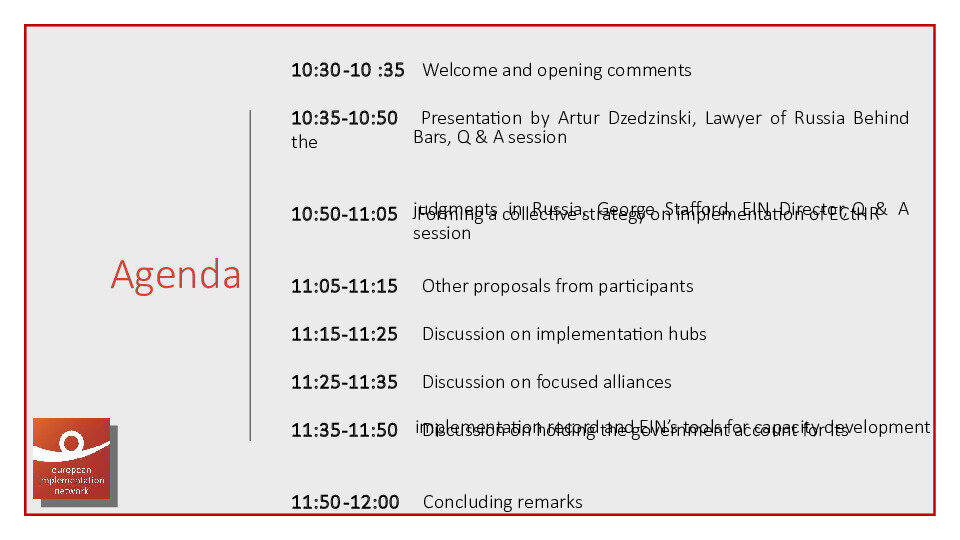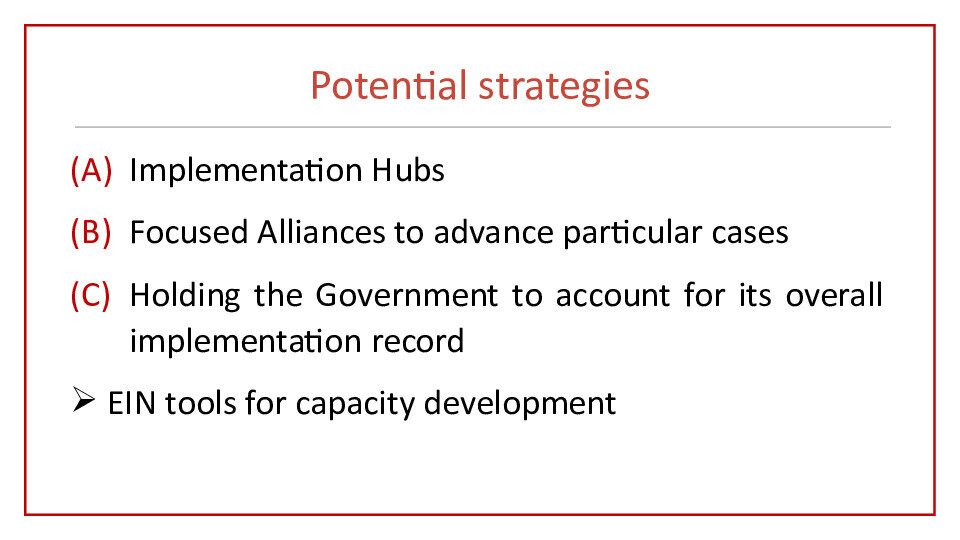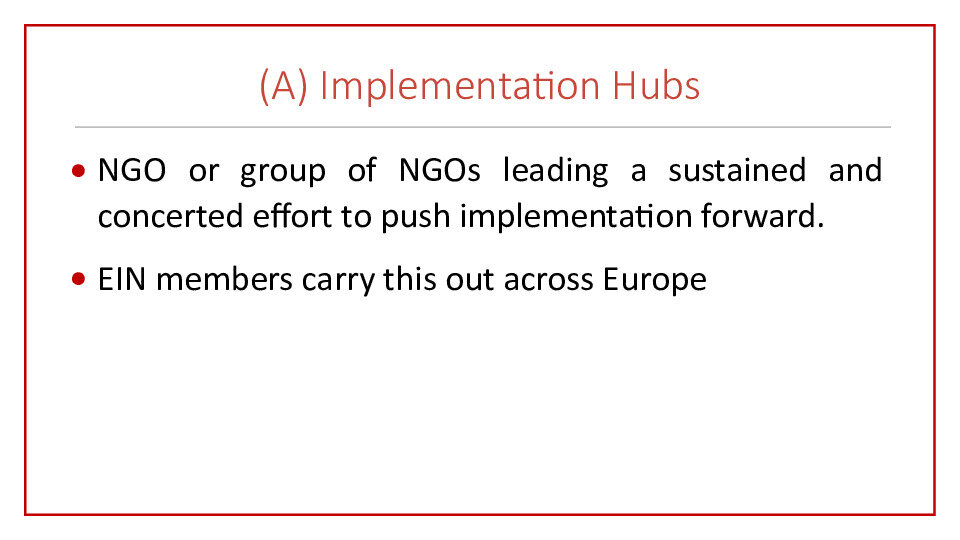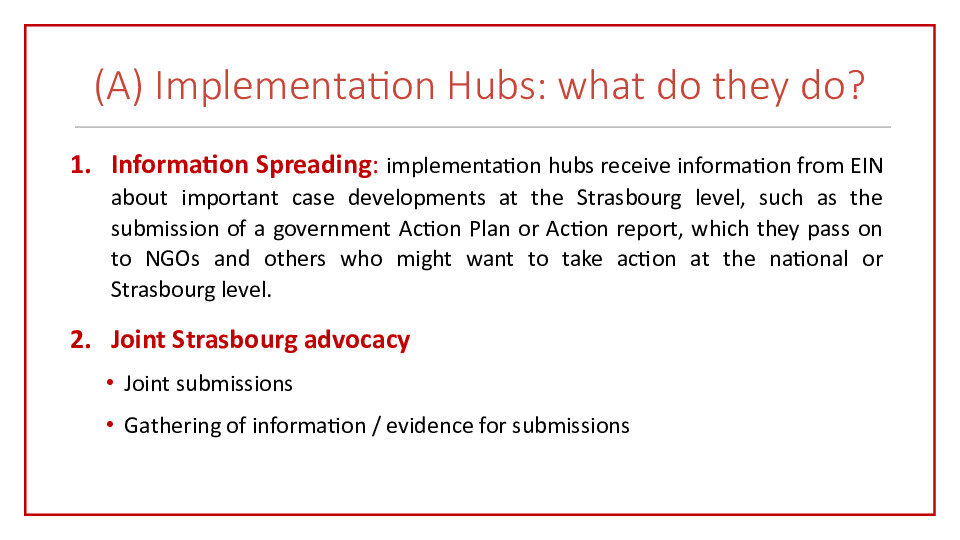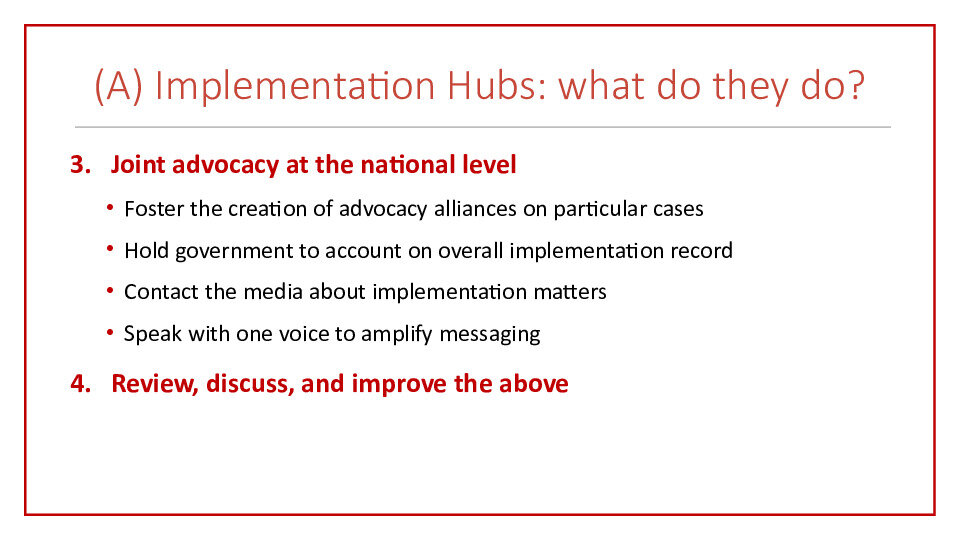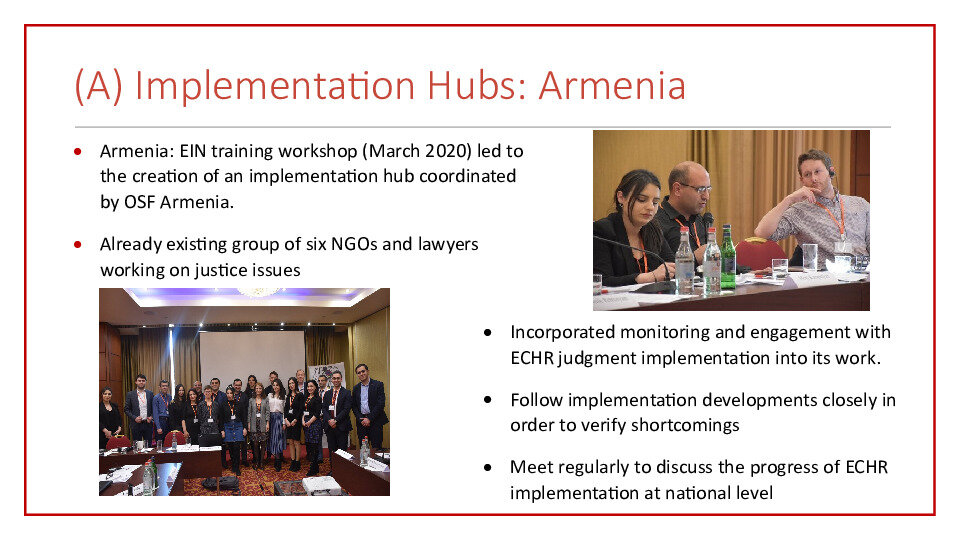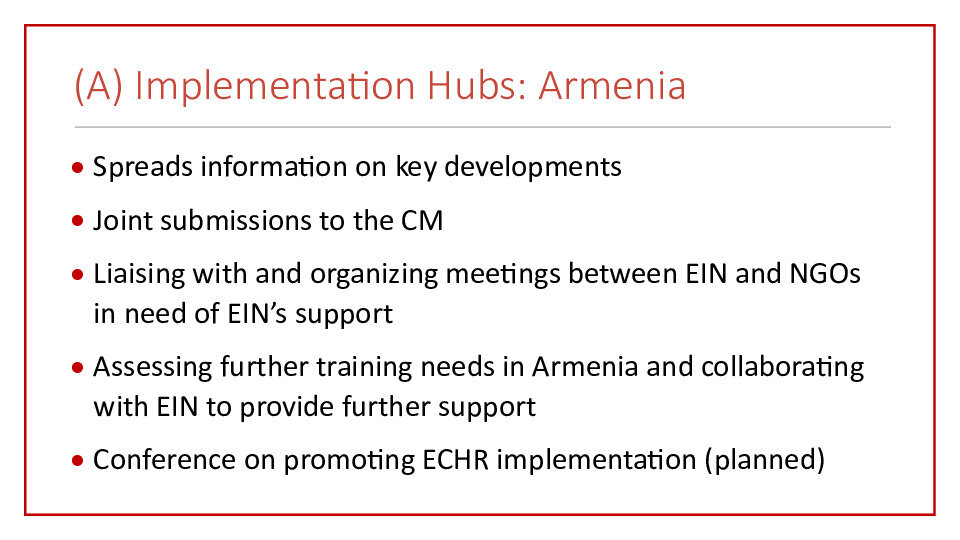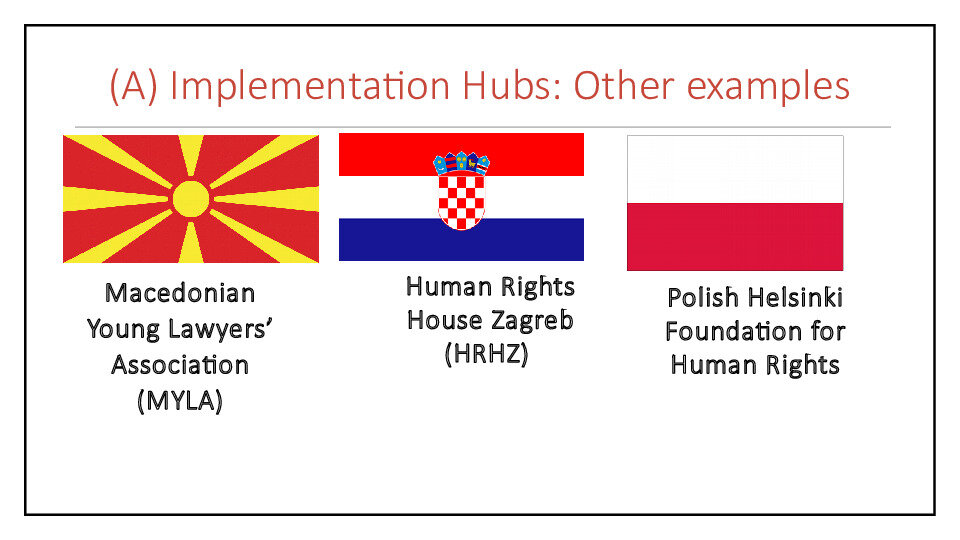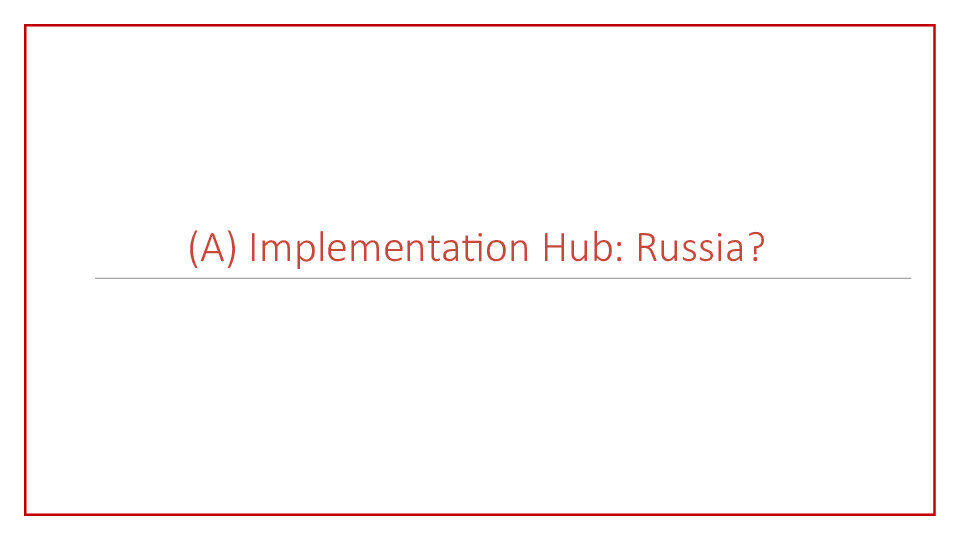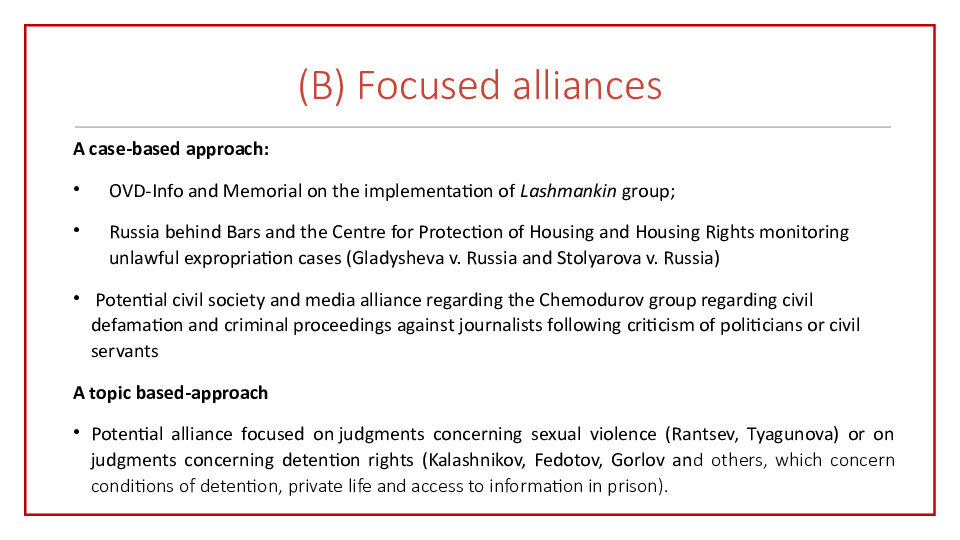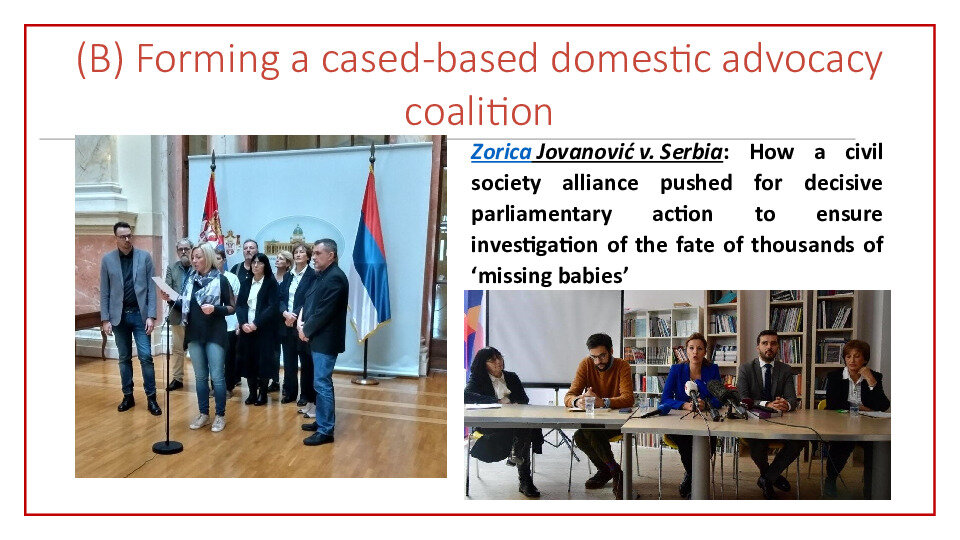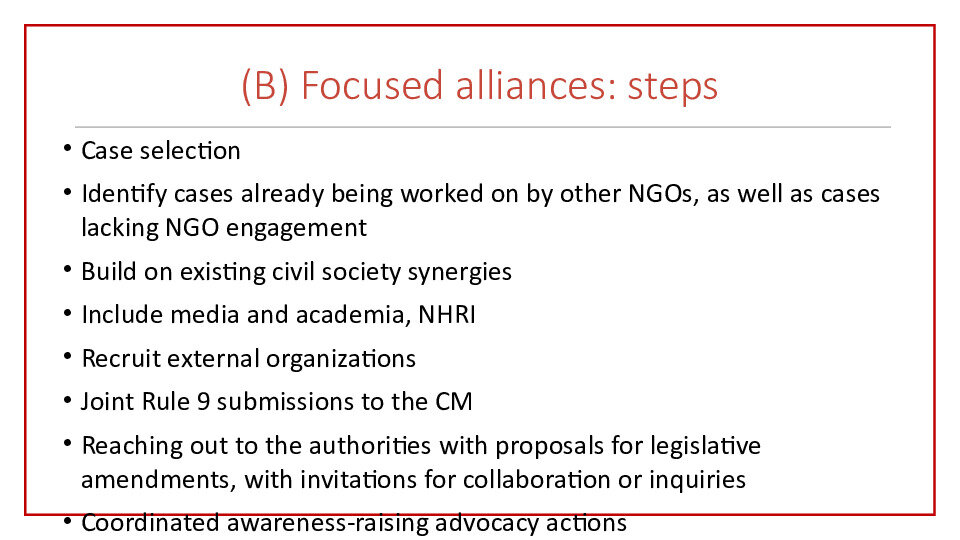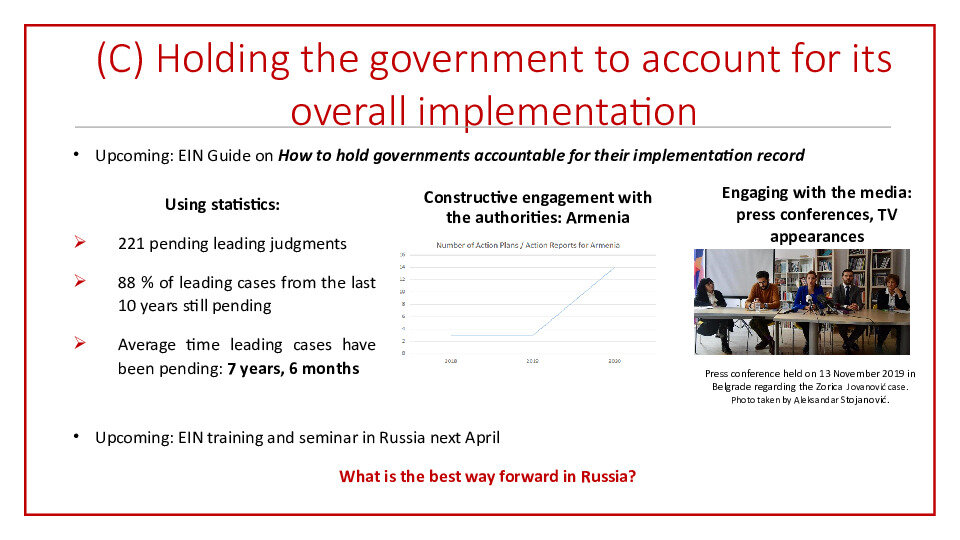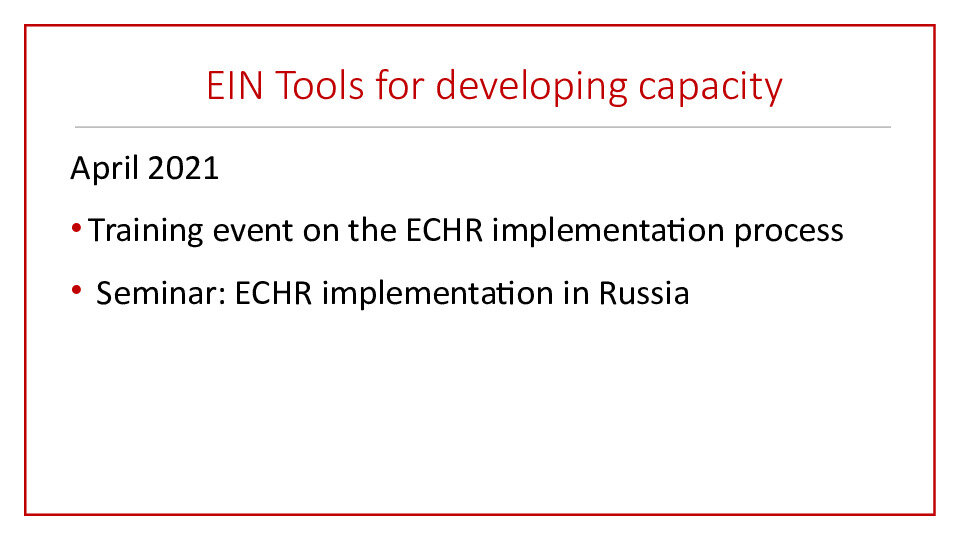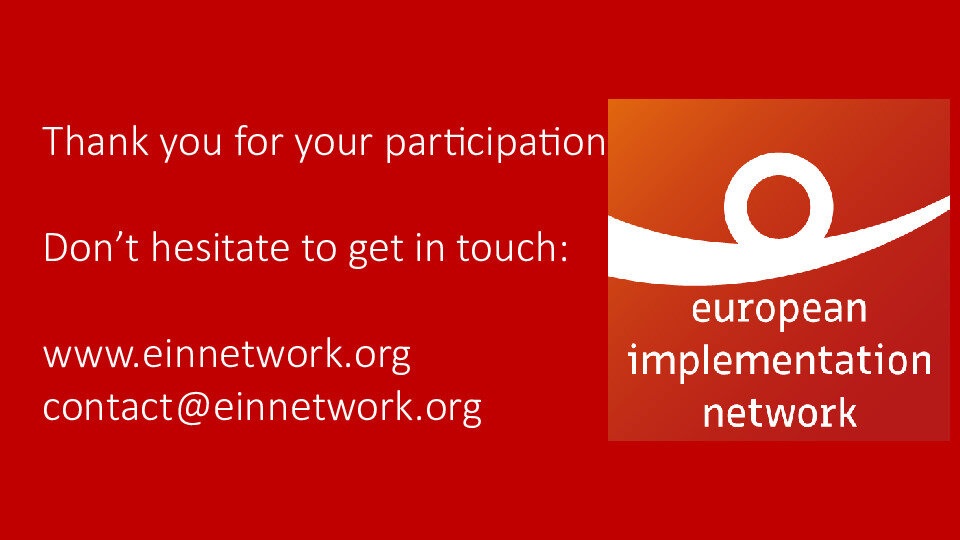Russia Webinar 3: Forming a collective strategy to advance implementation of ECtHR judgments in Russia
/The last webinar in the Russia series took place on the 24th November 2020. It aimed to encourage discussion on collective strategies that can advance implementation in Russia, through forming implementation hubs, focused alliances to campaign on particular cases and holding the government to account for its implementation record.
The webinar began with a presentation by Artur Dzedzinskii, Lawyer of Russia Behind Bars, on the organisation’s activities to promote the implementation of ECtHR judgments against Russia concerning the rights of prisoners. This set out the mixture of litigation, media outreach and co-operation work being done to push forward implementation in this area.
The webinar then discussed implementation hubs, which can be an NGO or group of NGOs leading a sustained and concerted effort to push implementation forward. These hubs can spread information to other NGOs who might want to take action, make joint Strasbourg submissions and advocate at the national level. Hubs are functioning across the Council of Europe member states, by EIN members. For more information on implementation hubs, please see our blog post on Armenian civil society training.
Next, the webinar turned to alliances of NGOs operating to promote the implementation of particular judgments, highlighting the different case-based approaches and topic based-approaches human rights organizations can utilize. The Lawyers’ Committee for Human Rights (YUCOM), the Association for Constitutionality and Legality (UZUZ) and ASTRA coalition on the missing babies’ case of Zorica Jovanović v. Serbia were used as a successful example from a different country. Within Russia, participants discussed the existing co-operation work of OVD-Info and Memorial on the implementation of Lashmankin group with a large group of other NGOs, as well as the formation of new alliances focused on the rights of prisoners and sexual violence.
The webinar closed on the topic of holding governments to account for their overall record on implementation. Strategies for accountability include using statistics (see our country implementation map), engaging constructively with authorities, (seen in the Armenian Example) and engaging with the media by press conferences and TV appearances (seen in the Zorica Jovanović example).
We hope that the discussion on strategies to best advance implementation in Russia will be a useful contribution to our collective efforts to improve implementation. It will help us shape EIN’s support going forward.
We thank all participants who joined these webinars and also our partners and members who collaborated with us.

